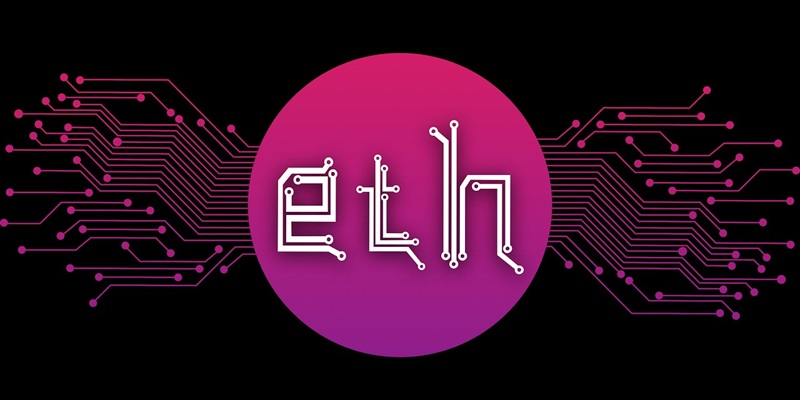In the ever-evolving world of technology, blockchain networks are facing an emerging threat that could put their security at risk: quantum computing. With the power to harness the principles of quantum mechanics, quantum computers pose a significant challenge to cryptographic safeguards that are the backbone of blockchain systems, such as Ethereum. Should quantum computing advance to a level where it can break the complex cryptographic algorithms currently in place, it could potentially unravel the security that is central to blockchain’s integrity. This quantum threat is leading the blockchain community to investigate new forms of encryption that could withstand the quantum computing challenge, seeking to secure the future of blockchains against this potent technological evolution. As the crypto landscape continues to adapt, staying ahead of such risks is critical for maintaining the trust and security that blockchains are known for.
The Quantum Computing Threat
Understanding Quantum Capabilities
Quantum computers utilize qubits, unlike classical computers which rely on bits. This distinction grants them the ability to handle extensive data and perform multiple calculations simultaneously. Quantum computing poses a significant threat to cryptographic security, including that of Ethereum’s blockchain. The primary concern is that these powerful machines can swiftly solve problems like factorization, upon which current cryptographic methods are built. As a result, the Ethereum network could become vulnerable to attacks and fraudulent activities. Recognizing the impending danger, there is an urgent push to develop cryptographic protocols that are resistant to quantum computing. These new solutions are necessary to safeguard the integrity and security of blockchain technology in a future where quantum computing is mainstream. As this technology progresses, the race is on to fortify blockchain against this potent computational force.
Ethereum’s Vulnerability
Ethereum, like other blockchains, relies on cryptography for security. However, the emergence of quantum computing represents a significant potential threat. Quantum computers, with their advanced capabilities, could possibly undermine cryptographic methods including Elliptic Curve Cryptography (ECC), which the blockchain currently uses. Aware of this, the Ethereum community is proactively exploring solutions to quantum-proof the network. Efforts are directed at finding alternative cryptographic protocols resilient against quantum decryption. For instance, Ethereum developers are assessing the viability of post-quantum cryptographic algorithms which are believed to be more resistant to quantum attacks. Should quantum computers become powerful enough to crack existing encryption, these new algorithms could safeguard Ethereum’s integrity. In addition to on-chain measures, there is also a focus on educating the community and encouraging stakeholders to remain vigilant against the quantum threat. As quantum technology evolves, these precautions are critical for maintaining Ethereum’s robustness and ensuring that assets remain secure in the face of this advancing technological frontier.
Strategic Countermeasures by Ethereum
Buterin’s Proposal for Quantum Defense
Ethereum’s co-founder, Vitalik Buterin, has put forward a bold proposal to mitigate potential quantum threats via a significant hard fork, aiming to quantum-proof the Ethereum blockchain. The primary facet of this upgrade involves the introduction of quantum-resistant cryptography, specifically advocating for the integration of Winternitz One-Time Signatures (WOTS). These signatures are designed to withstand the power of quantum computing, which poses a risk to current cryptographic practices. To enhance security measures further, Buterin recommends adding zero-knowledge proof technology to the protocol. These proofs would allow transaction validation to occur without exposing any sensitive information, thus maintaining privacy and heightening security in anticipation of quantum computing advancements. This proactive approach seeks to fortify Ethereum against future quantum vulnerabilities, ensuring the network’s integrity and user security in an evolving digital landscape.
Implementing Protocols for Quantum Safety
Vitalik Buterin is taking a proactive stance to safeguard Ethereum from quantum threats by proposing an Ethereum Improvement Protocol (EIP). This plan necessitates users transitioning to a new wallet system designed to be quantum resistant. During the proposed upgrade, there will be a fork, creating a transitional period which will allow users to smoothly adjust to the secure protocols without disrupting the network’s function. With a concurrent operation of the old and new systems, the transition promises minimal interruption. Successfully implementing these quantum-proof measures would significantly boost Ethereum’s defenses, ensuring its resilience against quantum decryption techniques. Buterin’s strategy emphasizes not just immediate responses but future readiness, underpinning Ethereum’s commitment to maintain security, earn user trust, and address upcoming quantum challenges head-on.

